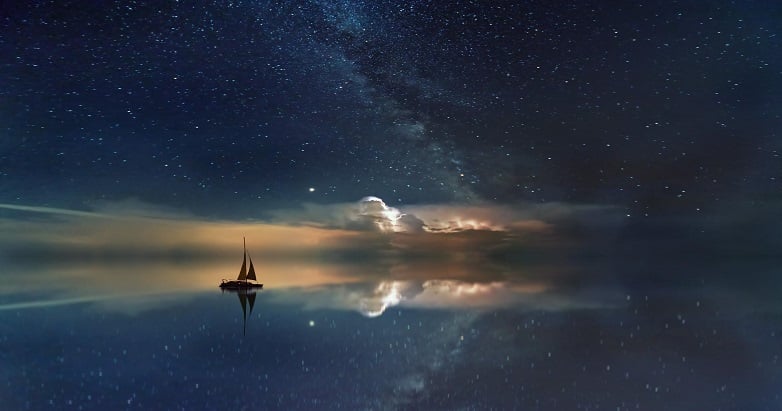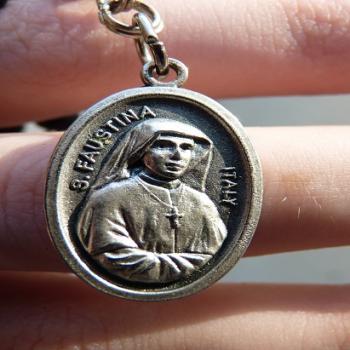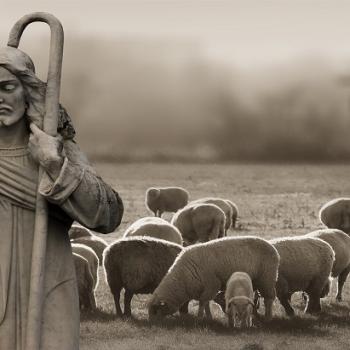I’ve been rewatching my favorite clips from The Fellowship of the Ring that showcase Galadriel, my favorite character. After studying the lore behind Galadriel giving Frodo the Light of Eärendil, I think Tolkien created a powerful analogy for employing hope against depression. Learning more about who exactly Eärendil was in the lore of LOTR drives this home for me.
Also, check out the awesome feature image I found for this post on Pixabay! I was hoping I could find a picture of a ship like Eärendil’s in the stars, and I found this one by happy chance! Here is his Pixabay gallery and Instagram, full of other amazing, inspiring landscape shots he’s taken.

Galadriel’s Words of Encouragement
The film version of Galadriel’s meeting with Frodo differs slightly from the book version. Originally, Sam also goes with Frodo to meet Galadriel at her Mirror to look into its enchanted waters. I’m usually not a fan of films changing scenes like this, but because of the private talk Galadriel has with Frodo, I do prefer this version:
After Galadriel successfully overcomes her temptation over the dark power offered by the One Ring, Frodo opens up to her about his despair over his quest:
Frodo: “I cannot do this alone.”
Galadriel: “You are a Ringbearer, Frodo. To bear a Ring of Power is to be alone.
This is Nenya, the Ring of Adamant, and I am its keeper.
This task was appointed to you. And if you do not find a way…no one will.”
Frodo: “Then I know what I must do. It’s just…I’m afraid to do it.”
Galadriel: “Even the smallest person can change the course of the future.”
–Frodo and Galadriel, “The Fellowship of the Ring”
In return for Frodo confiding in her, Galadriel, in turn, reveals to him that she also possesses a Ring of Power: Nenya, the Ring of Adamant. While Nenya gives Galadriel the power to preserve the forest of Lothlórien and protect it from evil, it also burdens her with the task of maintaining this protection.
The Rings of Power as Analogies for Mental Illness
To me, the Rings of Power come across as symbols of mental illness. Mental illnesses such as depression burden their carriers and, one way or another, can make them feel cut off from the rest of the world. Both Ringbearers and victims of mental illness can feel misunderstood by others and hesitant to reach out for help.
Galadriel subtly tells Frodo that as a fellow Ringbearer, she understands his anguish. You can see in this scene the compassion on her face when Frodo admits to her that he’s afraid to go through with his quest. While others perceive her as austere or even terrifying, in truth, Galadriel is a kind soul who only wishes to help others however she can.
Even then, she reminds him that no matter how small he feels he is in the face of what lies ahead, he still has the power to change the future for good.
The same is true for all of us who feel overwhelmed when facing what seems impossible to complete or overcome. Depression can disguise the future as simultaneously hopeless and inconquerable, but it doesn’t truly know what the future holds.
Galadriel gave Frodo the courage to give the future a chance, and so should we.
A Parting Gift of Light in the Darkness
The next day, when it’s time for the Fellowship to depart, Galadriel gives each member a gift to aid them on the quest to destroy the One Ring. Galadriel speaks to Frodo last, and arguably, her gift to him is the most special of all:
“Farewell, Frodo Baggins.
I give you the Light of Eärendil, our most beloved star. May it be a light for you in dark places when all other lights go out.”
–Galadriel, “The Fellowship of the Ring”
Hearing Galadriel say this to Frodo, along with the uplifting shift in the music, brought tears to my eyes. Without knowing exactly what the Light of Eärendil is, it looked like Galadriel gave this phial to Frodo for a special purpose.
In light of this analogy for hope against depression, it came across as a veteran of mental health passing on a symbol of hope and protection to a younger depressed person in need of aid.
A Helping Hand
I’m not sure if this scene shows up in the book version of The Return of the King, but regardless, it’s so touching. When Frodo collapses from exhaustion and weariness after escaping Shelob’s lair, he collapses only to witness this vision of Lothlórien:
Galadriel giving Frodo a hand to help him up comes across as a supernatural means of also lifting his spirits. She refused to sit by idly when Frodo had confessed his fears of going forward alone. In their own special way as Ringbearers, this was Galadriel’s method of reminding Frodo, “You are not alone.”
Galadriel vs. Sauron
I know that The Hobbit film trilogy has been nowhere as well-received as the original trilogy, primarily due to the excessive amount of CGI. But I love Galadriel’s scenes in The Battle of the Five Armies, where she travels to the dark fortress of Dol Guldur to rescue Gandalf and confront Sauron:
After they seemingly defeat the gathered Ringwraiths, Sauron reveals himself in full before the gathered White Council and delivers a speech intended to terrify them into despair. He declares that the time of the Elves has ended, perhaps a taunting throwback to the gloom faced in the wake of his master, Morgoth, in the First Age.
Instead of crippling his enemies, Sauron’s words cause Galadriel to ominously rise, cloaked in darkness while wielding the Light of Eärendil, beginning a massive battle of words and willpower.
You have no power here, servant of Morgoth!
You are nameless, faceless, formless!
Go back to the Void from whence you came!
–Galadriel, “The Battle of the Five Armies”
Galadriel eloquently calls Sauron “nothing” as he tries and fails to overwhelm her with his power and words. While it looks like Galadriel was resisting a possible attempt from Sauron to corrupt her with fear, she overcame it by channeling the power of Eärendil.
Not even standing inches in front of her, whispering threatening taunts and possible attempts to sway her to evil, shakes Galadriel’s resolve. In fury, Sauron transforms into a sphere of fire and leaves for Mordor, Galadriel standing triumphant.
A Lesson in Trust Against the Darkness
It’s possible that through the Light of Eärendil, Galadriel channeled the might of Varda, otherwise known as Elbereth Gilthoniel, the Queen of the Stars. Varda was the member of the Valar pantheon who Morgoth feared the most.
Galadriel knows that she can’t rely on herself to overcome Sauron and invokes a plea for aid that guarantees her victory. Unlike Sauron, who only trusts himself, Galadriel knows when to ask for help, which gives a great parallel to this Bible verse:
“Submit yourselves therefore to God. Resist the devil, and he will flee from you.” (James 4:7)
Whether it’s a wannabe dark lord or the darkness of depression, we owe it to ourselves to not try to enter this battle alone. There’s no shame in asking for help, a lesson provided by the namesake of Galadriel’s iconic item: Eärendil the Mariner.
Eärendil’s Legacy
Before writing this article, I didn’t know much about Eärendil other than his status as Elrond of Rivendell’s father. I’ve been recently watching the videos made by The Nerd of the Rings, an excellent lore YouTube channel that delves deep into the series’ characters. Here’s his video on Eärendil:
Eärendil was a half-Elven hero responsible for the Valar (the gods and goddesses of Middle Earth) leaving Valinor to defeat Morgoth, the first Dark Lord. He and his wife, Elwing, are the parents of Elrond and thus Arwen’s grandparents. What a great lineage!
The Stars Upon the Sea
Both Eärendil and Elwing serve as symbols of hope in the Silmarillion, which contains the history of the Elves and the events preceding the original series. These Elvish heroes both have an affiliation with stars and the hope they provide.
Elwing refuses to give up either her hope or her bravery when their home city is attacked by the sons of Fëanor, who heard that she and Eärendil carried one of their father’s Silmaril jewels. To escape her attackers while Eärendil is away on the sea, Elwing jumps into the sea and is transformed into a great white bird (possibly a swan) by Ulmo, the Vala who ruled the seas.
When Ulmo transforms Elwing, the Silmaril shines on her breast like a brilliant star. Elwing flies to Eärendil that night, coming to his ship like a star over the waters. In the morning, she transforms back into her original form, thus assuring Eärendil of his wife’s safety.
Eärendil’s Plea
As Elwing sleeps to recover from her turmoil, Eärendil determines that to protect his people, he must find Valinor and plea their case before the Valar. He risked death for trespassing in the Undying Lands after the decree made by Mandos, the Vala responsible for declaring “dooms” against evildoers.
Mandos had passed judgment against the Ñoldor, the line of Elves responsible for the Kinslaying at Alqualondë, that they were forbidden from returning to the Undying Lands on penalty of death. It was a truly just judgment for the cruel, merciless death they’d wrought against their Elven kin in this massacre.
However, it was clear to the Valar that Eärendil had sought Valinor for the sake of others, not his gain. For this, they refused to pass judgment against his arrival and heard his plea. Eärendil asked the Valar to aid Elves and Men against Morgoth, the enemy of all.
The Valar agreed to wage war upon Morgoth, which led to the War of Wrath, a devastating conflict that destroyed part of Middle-earth. Eärendil aided the Valar by using his ship, Vingilot, which had been enchanted to fly by the Valar. The Mariner slew Ancalagon, Morgoth’s greatest dragon, a decisive victory that marked Morgoth’s defeat.
His aid in defeating Morgoth more than earned him the praise as “our most beloved star”, as Galadriel spoke of him to Frodo.
Eärendil’s Bravery: Asking for Help Against Overwhelming Odds
Eärendil provides a powerful example of trusting others for their aid when the situation is bleak. He knew that alone, he and the other Elves couldn’t face Morgoth, especially with the turmoil and chaos caused by the ongoing obsession with the Silmarils. By going to the Valar and pleading for their help, Eärendil showed that he wasn’t afraid to rely on outside help in the hour of need.
Indeed, Eärendil placing his hope in the Valar is a poetic analogy for letting ourselves ask for help in our dark times.
I love that Eönwë (the herald of Manwë who greeted Eärendil upon his arrival in Valinor) calls the Mariner a “star in the darkness”. Eärendil would forever become a star in the darkness to all who looked to him and his actions as a symbol of hope.
Indeed, his enchanted ship, alight with what may have been the fire of Eru Ilúvatar, the God of Middle-earth, would be called “Gil-Estel” (Star of High Hope) by all who saw its journey in the heavens.
I think Eärendil might be the “evening star” referenced in Enya’s beautiful song “May It Be”!
For their selflessness, both Eärendil and Elwing were elevated so that they would never set foot on the lands of Middle-earth. Eärendil took to the skies, even journeying beyond the Door of Night into what might’ve been outer space. Elwing took residence in Valinor, in a white tower that became a resting haven for many seabirds who taught her how to fly like them.
Galadriel, Frodo, and (in the books) Sam use the phial capturing Eärendil’s light to ward off evil and renew their spirits. His great faith in times of darkness inspired them to keep pushing on, no matter the odds.
Lights of Hope Against Depression
Depression can feel like suffocating darkness, which I and millions of others know personally. When we find a light to cling to, whether physical or metaphorical, we feel immense relief. Seeing a light in the darkness reminds us that we’re not alone, a lie Galadriel repeatedly shot down.
When I started opening up about my depression, one of my cousins reached out to me and encouraged me to spend time at night looking up at the stars. Her advice was terrific and continues to help me avoid taking the peace of the night sky for granted. My clunky little phone (with a lot of editing) helped capture these stars, for which I’m grateful.
I found this article by an author on Huffpost, a fellow struggler with depression who loves the recurring theme of light giving hope in LOTR. She nailed it and poignantly described the relief we feel when we overcome our depression. It all calls to mind the touching scene where Frodo wakes up in Rivendell after the One Ring is destroyed and joyfully reunites with the Fellowship:
Don’t downplay your low moments, friends. I hate that sometimes, we feel pressured to dismiss our anguish because “other people have it worse than me.”
Life isn’t supposed to be a competition of suffering. And we all deserve to ask for help when we know we need it.
May we all remember, from the lessons Tolkien gave us in his works, that we don’t have to face the darkness alone.
National Suicide Prevention Hotline: 1-800-273-8255
Featured Image by jplenio/Pixabay
Hello, and thank you for supporting my work here on Patheos! If you’d like to support me further, please feel free to “Buy Me A Coffee” here:













